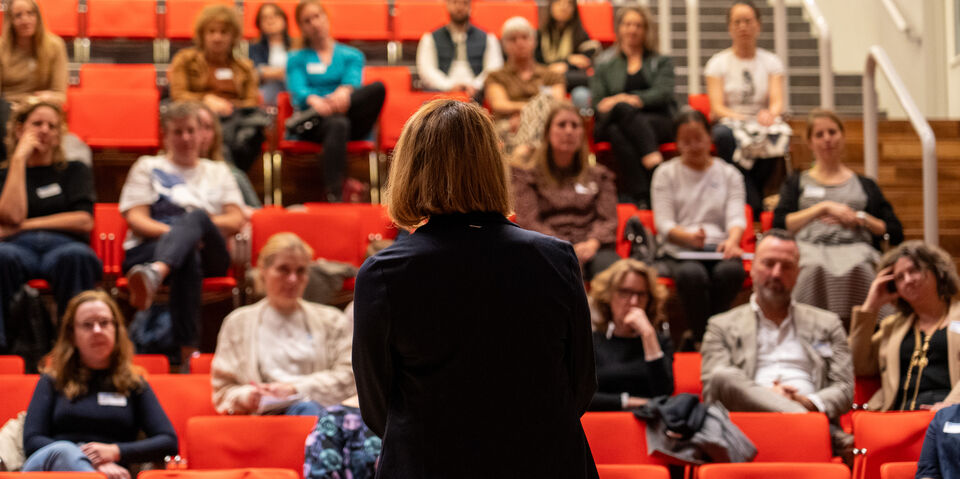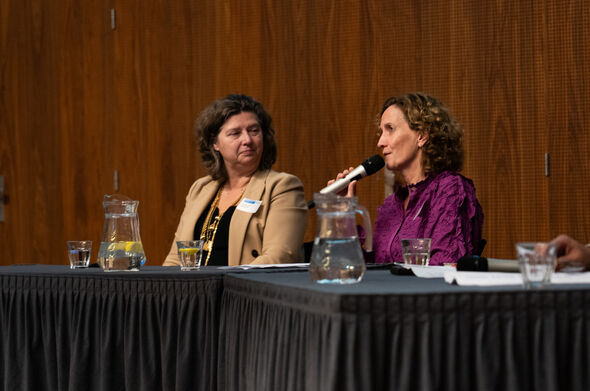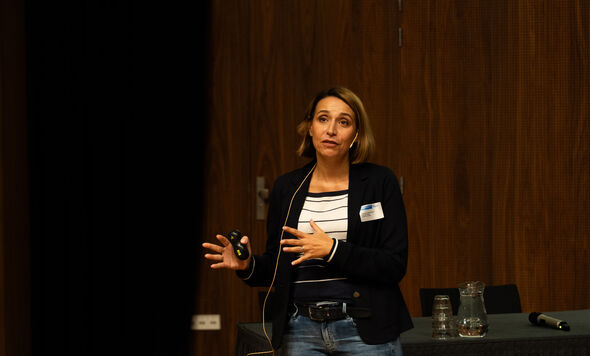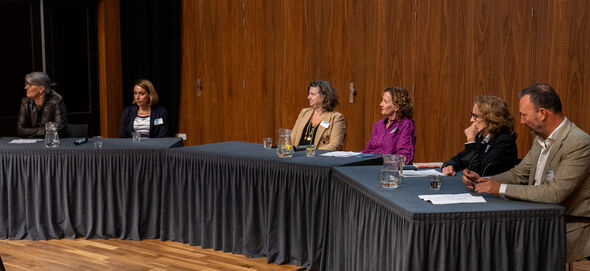“Gender equality remains a priority in times of budget cuts"
What do budget cuts mean for gender equality within the university? That was the question posed by the Women in Science Eindhoven (WISE) network on Thursday at an event, directed at a panel filled with members from the upper echelons of the TU/e. They largely agreed: there are no immediate concerns.
The panel discussion on the impact of budget cuts on gender equality is part of a WISE event on the same topic. The table was filled with high-ranking university officials, including Patrick Groothuis, Vice President of the Executive Board, and the new HRM Director, Nicole Mølby-Bueters. She emphasized that the university wants to continue moving “full speed ahead” in pursuing gender equality.
This is a deliberate choice by the university’s leadership, agrees Jolie van Wevelingen, Managing Director of Applied Physics and Electrical Engineering. “I’m a little confused by the question. Why would budget cuts negatively affect gender equality?” She argues that when building a community together, gender equality is one of the basic things that must be done right.
However, the discussion moderator notes that there is reason to at least ask the question. Budget cuts could lead universities to focus more on their “core activities” and reduce funding for diversity programs or grants aimed at increasing diversity.
The government has indeed eliminated starter grants, Groothuis points out, but that affects all young people. He emphasizes: “Governments come and go, so think carefully about how you vote next time.” According to him, the university actively chooses not to cut funding in certain areas, and gender equality is one of them.
Minority
Professor Anja Pasmans of Chemical Engineering does see potential issues arising from the budget cuts. At some faculties, she notes, the cuts mean that no new staff are being hired—and therefore no additional women—so the male-to-female ratio cannot be further balanced. Later, Groothuis raises the question of when a minority can still be considered a minority. “Research shows that the tipping point is around thirty percent. So we need to work very hard to at least reach that number.” According to him, the Irène Curie Fellowship program, which gives women priority to apply in the first six months, has contributed to the fact that fifty percent of all incoming assistant professors are now women. “Significant progress has already been made.”
It is important to retain these young researchers, says Liz Root, Managing Director of Built Environment. “We’ve invested in them, they are here, and now the task is to make sure they stay. Only then do you truly reap the benefits of the decision to hire more women.”
Academic citizenship
The WISE event is not only about budget cuts. It also focuses on “academic citizenship” and the amount of extra work women often take on. Luana Russo addresses this in a keynote, sharing findings from a study she conducted at her own university in Maastricht. She notes that the results are not representative due to the voluntary nature of the survey.
However, she argues it is clear that women in academia perform much more “service work” than men. This includes tasks outside of official contracts, such as serving on committees or reviewing papers, as well as assessing a thesis for a colleague or proofreading a document. Women are more likely to say yes to additional tasks, and it is expected of them. “For men, a yes is positive and a no is neutral. For women, a yes is neutral and a no is negative,” Russo explains.
Invisible work
This voluntary extra work often comes at the expense of time that could be spent on research, she says, potentially hindering women’s promotion prospects. WISE asked the panel whether there should be more recognition for academic citizenship and such additional work. “There already is,” Root responds. “We already recognize leadership and involvement and take this into account in promotions.” However, she notes that the vision of leadership could use an update. “Ten years ago, academic leadership might have been more about ruling with an iron fist; now mentorship and inclusivity are more important.” In practice, these new values are already considered during evaluations, she emphasizes.
Mølby-Bueters also observes that there is increasing recognition for tasks outside of research and teaching, and that leadership is being viewed differently. She adds that more time is needed to align theory and practice. According to Van Wevelingen, extra work is part of one’s career. “You give back to the community that gives you your career.” Russo, however, is focused on the invisible tasks, such as helping a colleague review a thesis. She believes much more attention should be given to these efforts. “Having a conversation about this is certainly worthwhile.”
This article was translated using AI-assisted tools and reviewed by an editor.





Discussion